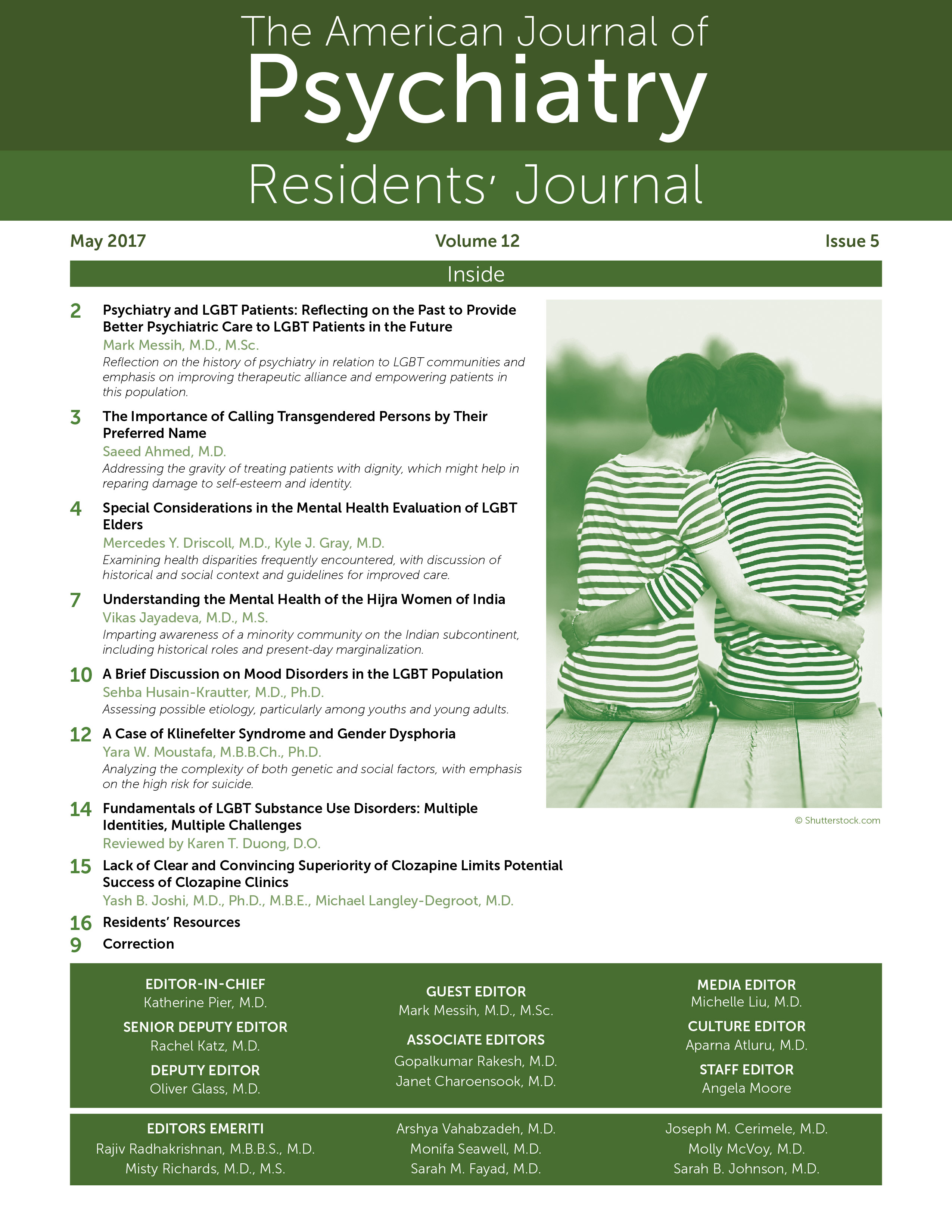Psychiatry and LGBT Patients: Reflecting on the Past to Provide Better Psychiatric Care to LGBT Patients in the Future
“The appearance in nineteenth-century psychiatry … of a whole series of discourses on the species and subspecies of homosexuality … made possible a strong advance of social controls into this area of “perversity”; but it also made possible the formation of a “reverse” discourse: homosexuality began to speak in its own behalf, to demand that its legitimacy or “naturality” be acknowledged”
Psychiatry and the LGBT community have a long-standing history as reflected in the works of Foucault, a noted French scholar. The way in which mental health professionals understand LGBT identity influences the quality of care such patients receive and informs broader social perceptions. Accordingly, looking at from where psychiatry has come informs where the field needs to go. LGBT identity was first discussed as pathology, then as sexual immaturity, and ultimately as “normal variation” (2). Later, Freud would discuss homosexuality as being “produced by a certain arrest of sexual development” (3). He would ultimately argue against its classification as illness. Subsequent psychoanalysts disagreed with Freud’s work, viewing homosexuality as pathology, treatable with “cures” (4). This led to the addition of homosexuality as “sociopathic personality disturbance” in DSM-I in 1952, then as “sexual deviation” in DSM-II in 1968. In the context of social and political upheaval of the 1960s and 1970s, and the activism of psychiatrists, homosexuality was removed from DSM-III in 1973. Building on this progress, there is growing support for LGBT communities emerging from medical disciplines. Organizations such as the Association of Gay and Lesbian Psychiatrists show the significant advances made. Moving forward, psychiatrists are positioned to fight ongoing challenges. By taking a moment to reflect on the history of psychiatry in relation to LGBT communities, and the significant accomplishments we have made, we can improve the therapeutic alliance and empower patients.
As clinicians, we have the ability to learn from past experiences and current successes, to do better for our patients. What “better” consists of is debatable, but raises multiple questions. How well are psychiatrists trained about the challenges specific to LGBT patients? What are unique stressors and barriers to care? Subsequently, how can psychiatrists empower and advocate for patients and assist them in meeting treatment goals?
In this issue of the Residents’ Journal, authors approach such questions from a variety of perspectives, from a case report on transgender mental health to topic reviews on aging LGBT individuals and substance use. These articles reflect the scale and scope needed to move forward. The field of psychiatry has taken significant steps forward in the treatment, and advocacy of, LGBT patients. This issue reflects these advances and seeks to carry that tradition into the next generation of psychiatrists.
1. : The History of Sexuality. London, Penguin Books, 1990 Google Scholar
2. : Out of DSM: depathologizing homosexuality. Behav Sci 2015; 5(4):565–575 Crossref, Google Scholar
3. : Three Essays on the Theory of Sexuality. London, Hogarth Press, 1905 Google Scholar
4. : Adaptational Psychodynamics: Motivation and Control. New York, Science House, 1969 Google Scholar



